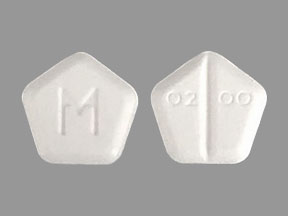Motofen Interactions
There are 306 drugs known to interact with Motofen (atropine/difenoxin), along with 22 disease interactions, and 2 alcohol/food interactions. Of the total drug interactions, 7 are major, 281 are moderate, and 18 are minor.
- View all 306 medications that may interact with Motofen
- View Motofen alcohol/food interactions (2)
- View Motofen disease interactions (22)
Most frequently checked interactions
View interaction reports for Motofen (atropine / difenoxin) and the medicines listed below.
- Adderall (amphetamine / dextroamphetamine)
- alprazolam
- Ambien (zolpidem)
- amoxicillin
- Asacol (mesalamine)
- Ativan (lorazepam)
- atropine / diphenoxylate
- Benadryl (diphenhydramine)
- Bentyl (dicyclomine)
- Celexa (citalopram)
- Darvon (propoxyphene)
- Dexedrine (dextroamphetamine)
- Dilaudid (hydromorphone)
- doxycycline
- Eliquis (apixaban)
- Fioricet (acetaminophen / butalbital / caffeine)
- Flexeril (cyclobenzaprine)
- gabapentin
- hydrochlorothiazide
- ibuprofen
- ketamine
- Lamictal (lamotrigine)
- Lipitor (atorvastatin)
- lisinopril
- Lomotil (atropine / diphenoxylate)
- lorazepam
- meclizine
- ondansetron
- prednisone
- Xanax (alprazolam)
Motofen alcohol/food interactions
There are 2 alcohol/food interactions with Motofen (atropine / difenoxin).
Motofen disease interactions
There are 22 disease interactions with Motofen (atropine / difenoxin) which include:
- autonomic neuropathy
- GI obstruction
- glaucoma
- obstructive uropathy
- reactive airway diseases
- myasthenia gravis
- infectious diarrhea
- cardiac disease
- tachycardia
- coronary artery disease
- gastric ulcer
- gastroesophageal reflux
- ulcerative colitis
- fluid/electrolytes
- hepatic/renal dysfunction
- toxic megacolon
- liver disease
- renal failure
- hypertension
- hyperthyroidism
- diarrhea
- fever
More about Motofen (atropine / difenoxin)
- Motofen consumer information
- Compare alternatives
- Pricing & coupons
- Reviews (3)
- Drug images
- Side effects
- Dosage information
- During pregnancy
- Drug class: antidiarrheals
Related treatment guides
Drug Interaction Classification
| Highly clinically significant. Avoid combinations; the risk of the interaction outweighs the benefit. | |
| Moderately clinically significant. Usually avoid combinations; use it only under special circumstances. | |
| Minimally clinically significant. Minimize risk; assess risk and consider an alternative drug, take steps to circumvent the interaction risk and/or institute a monitoring plan. | |
| No interaction information available. |
See also:
Further information
Always consult your healthcare provider to ensure the information displayed on this page applies to your personal circumstances.


